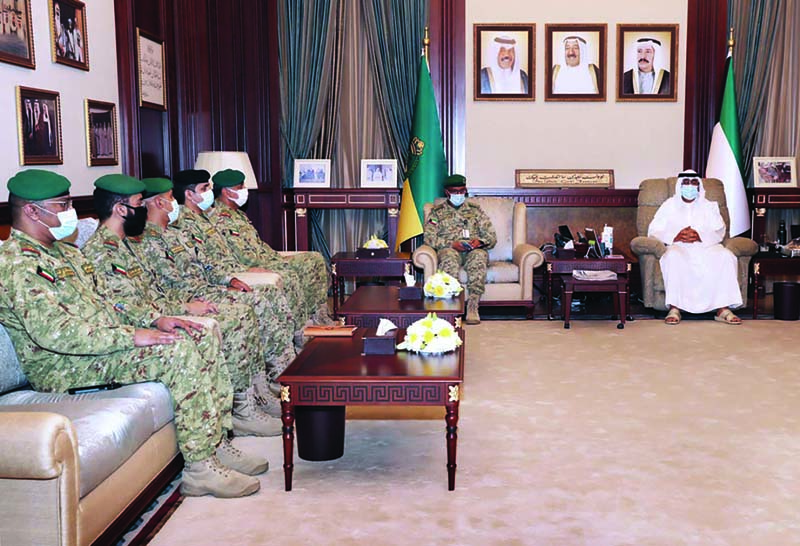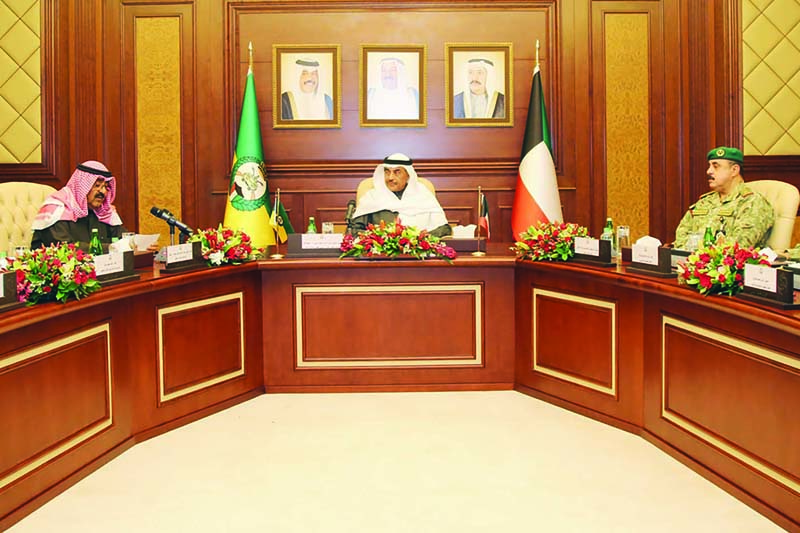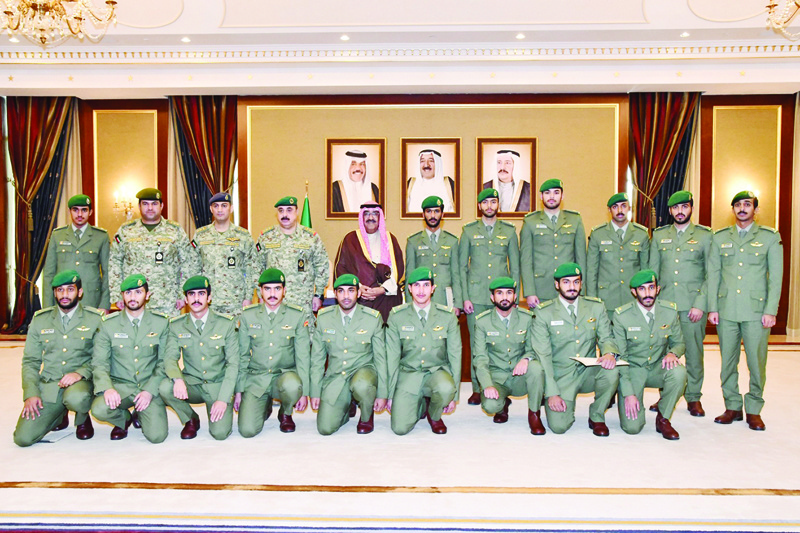
KUWAIT: Kuwait's crown prince in waiting, Sheikh Mishal Al-Ahmad Al-Sabah, is a forceful figure who steered clear of political battles and public roles and spent much of his career helping build the Gulf Arab state's security and defense apparatus.
Close to the late Amir His Highness Sheikh Sabah Al-Ahmad Al-Jaber Al-Sabah and new Amir His Highness Sheikh Nawaf Al-Ahmad Al-Jaber Al-Sabah, Kuwait experts say, he is expected to help guide state affairs in the US-allied OPEC member state. "The Amir will listen to his views, he will have an impact in that way," said Kuwaiti political scientist and former UN envoy Ghanim Alnajjar. "His focus will be security, the judiciary and other domestic issues."
Sheikh Mishal has been deputy chief of the Kuwait National Guard since 2004 and was head of State Security for 13 years after joining the Interior Ministry in the 1960s. Sheikh Mishal, who attended Britain's Hendon Police College, was credited with helping to reform the Kuwait National Guard, and Kuwaiti journalist Faisal Al-Qanae once described him as the "biggest enemy" of cronyism and lawbreaking.

Sheikh Mishal Al-Ahmad Al-Jaber Al-Sabah receives condolences from Kuwait National Guard officials over the passing of His Highness Sheikh Sabah Al-Ahmad Al-Jaber Al-Sabah at the Kuwait National Guard headquarters building on October 6, 2020. 
In this February 13, 2018 file photo, Sheikh Mishal Al-Ahmad Al-Jaber Al-Sabah poses for a group photo with Kuwait National Guard officers who were honored for organizing training programs for new recruits.
Reforms
His Highness Sheikh Nawaf, who is seen upholding Kuwait's current oil, investment and foreign policies, takes the helm as the country faces a liquidity crisis caused by low oil prices and the coronavirus pandemic, which the Kuwait National Guard has played a visible role in combating.
Diplomats and analysts say the immediate focus will be on domestic issues with perceived corruption, living standards and the economy the top priorities for most Kuwaitis in a country with a cradle-to-grave welfare system and where expatriates constitute a big part of the workforce. Deutsche Bank has estimated that Kuwait's nearly $140 billion economy could shrink by 7.8 percent this year in what would be one of the worst economic crunches among Gulf oil exporters.
Key will be cooperation between cabinet and the outspoken assembly, the Gulf region's oldest legislature that wields power to block bills and question ministers. Clashes have led to successive government reshuffles or dissolution of parliament.
Kuwaiti opposition figures have proposed electoral reforms and a pardon for dissidents in recent meetings with His Highness Sheikh Nawaf before he assumed power. "Reformers and independents are looking for reconciliation (with the government), enhancing freedom of speech, economic and political reforms, combating corruption, demographics," Alnajjar said. - Reuters

This March 17, 2020 file photo shows Sheikh Mishal Al-Ahmad Al-Jaber Al-Sabah (left) speaking during a high-level meeting with His Highness the Prime Minister Sheikh Sabah Al-Khaled Al-Hamad Al-Sabah at the Kuwait National Guard headquarters building, to discuss preparations to handle the coronavirus crisis. 
This March 15, 2020 file photo shows Sheikh Mishal Al-Ahmad Al-Jaber Al-Sabah in a group photo with newly-graduated Kuwait National Guard officers.

